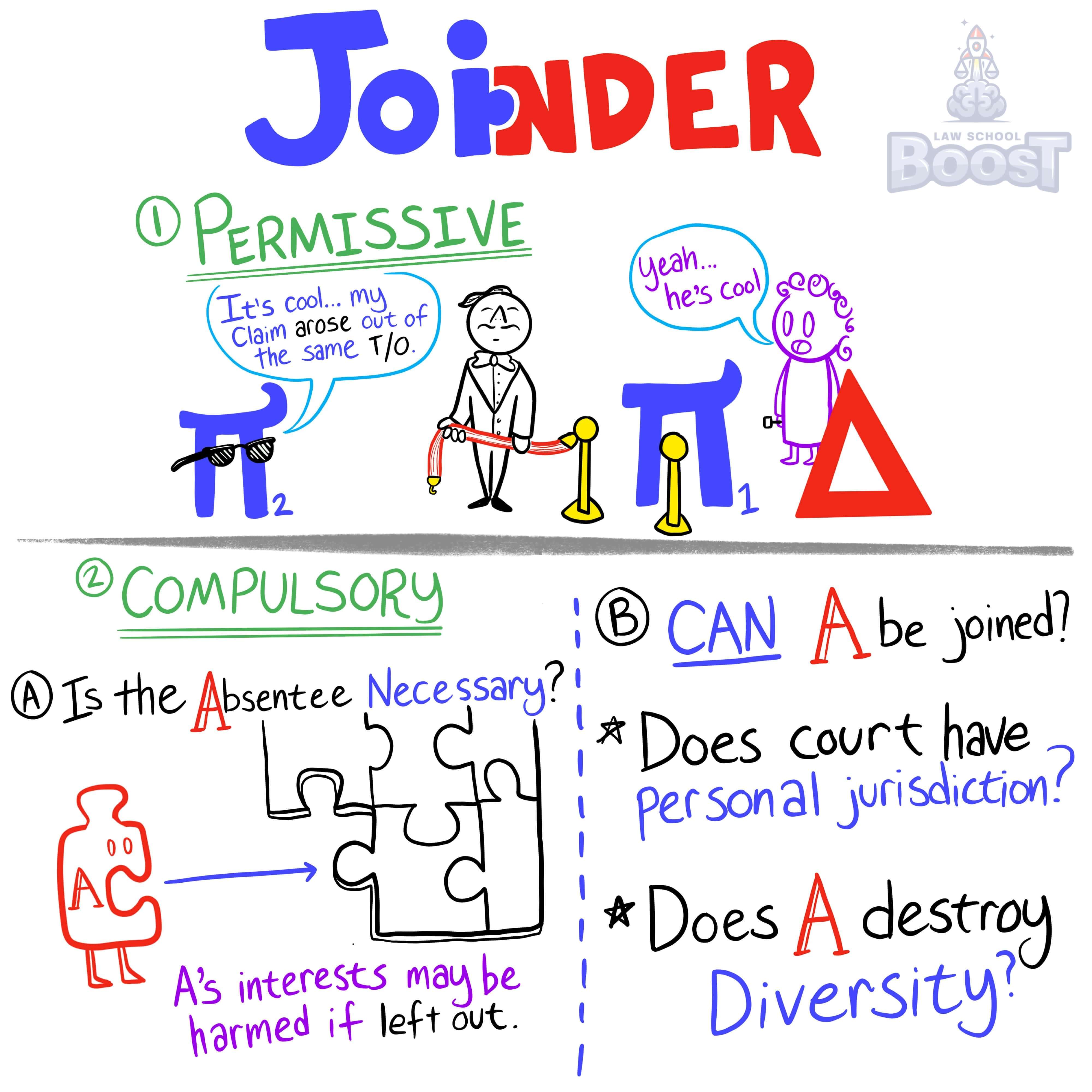🤤
Civil Procedure • Joinder
CIVPRO#049
Legal Definition
Joinder may be either permissive or compulsory. There are essentially 3 questions: (1) is joinder proper; (2) is joinder possible without destroying jurisdiction; and (3) if joinder is not possible, is the absent party indispensable?
Plain English Explanation
Joinder is about figuring out who should be involved in a lawsuit. There are 3 main questions you need to answer when deciding whether someone else should be added to a case:
(1) Is the person’s involvement necessary for the lawsuit to be fair? Think of it like a group project: If leaving someone out would make the project incomplete or unfair, then they should probably be involved. The court looks at whether that person has a direct stake in what happens. If the lawsuit could affect their rights, they likely need to be included.
(2) Can the person be added without causing bigger legal problems, like losing the court’s power to decide the case? Courts need to make sure that adding someone doesn’t mess up the rules that allow them to handle the case. For example, if it’s a federal case based on diversity (parties from different states), adding someone from the same state as another party might take away the court’s ability to keep the case.
(3) If the person can’t be added, is the case too unfair to continue without them? Sometimes, it’s not possible to add someone, but the court has to decide if the lawsuit can still move forward fairly. If leaving them out makes it too unfair, the case might have to be dropped. The court will weigh whether there are other ways to protect the person’s interests or if the case just can’t go on without them.
(1) Is the person’s involvement necessary for the lawsuit to be fair? Think of it like a group project: If leaving someone out would make the project incomplete or unfair, then they should probably be involved. The court looks at whether that person has a direct stake in what happens. If the lawsuit could affect their rights, they likely need to be included.
(2) Can the person be added without causing bigger legal problems, like losing the court’s power to decide the case? Courts need to make sure that adding someone doesn’t mess up the rules that allow them to handle the case. For example, if it’s a federal case based on diversity (parties from different states), adding someone from the same state as another party might take away the court’s ability to keep the case.
(3) If the person can’t be added, is the case too unfair to continue without them? Sometimes, it’s not possible to add someone, but the court has to decide if the lawsuit can still move forward fairly. If leaving them out makes it too unfair, the case might have to be dropped. The court will weigh whether there are other ways to protect the person’s interests or if the case just can’t go on without them.
Visual Aids



